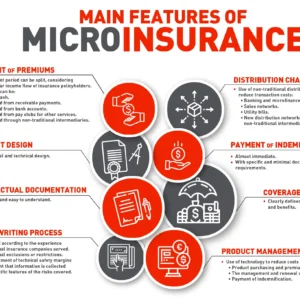
Outline:

1: Introduction
- Introduction to the concept of life insurance and its importance
- Brief overview of term life and whole life insurance
- Main objective of comparing term life vs whole life insuran
2: Understanding Term Life Insurance
- Definition and overview of term life insurance
- Key features of term life insurance
- Duration of coverage
- Premium costs
- Payout structure
- Flexibility
- Pros of term life insurance
- Lower premiums
- Simplicity and straightforwardness
- Ideal for temporary needs
- Cons of term life insurance
- No cash value
- Expiration of coverage
- Potential price hikes after the term end
3: Understanding Whole Life Insurance
- Definition and overview of whole life insurance
- Key features of whole life insurance
- Lifelong coverage
- Premium costs
- Cash value accumulation
- Dividends and investment opportunities
- Pros of whole life insurance
- Lifetime coverage
- Cash value growth
- Borrowing opportunities
- Guaranteed death benefit
- Cons of whole life insurance
- High premiums
- Complex structure
- Slow cash value growth in the early years
4: Term Life vs Whole Life: Comparing the Basics
- Overview of key differences between term life and whole life
- Premium comparison
- Term life is cheaper
- Whole life is more expensive
- Coverage comparison
- Temporary vs permanent coverage
- Cash value component
- Whole life accumulates cash value; term life does not
- Length of coverage comparison
- Fixed term (term life) vs lifelong coverage (whole life)
5: When Should You Choose Term Life Insurance?
- Situations where term life insurance is ideal
- Young families with temporary financial obligations
- Short-term financial responsibilities
- Those on a budget who need affordable coverage
- Situations where cash value isn’t needed
- Example scenarios of choosing term life insurance
- Mortgage protection
- College savings for children
- Short-term income replacement
6: When Should You Choose Whole Life Insurance?
- Situations where whole life insurance is ideal
- Lifelong coverage is required
- The need for cash value accumulation
- Legacy planning and estate planning
- High-income earners looking for a financial tool
- Example scenarios of choosing whole life insurance
- Wealth transfer to heirs
- Supplementing retirement income
- Long-term financial protection
7: Financial Considerations for Choosing Term Life vs Whole Life
- Financial goals and how they influence your choice
- Long-term vs short-term financial obligations
- Affordability and budgeting for premiums
- How your family’s needs shape your decision
8: How Term Life Insurance Fits Into Financial Planning
- Role of term life insurance in overall financial planning
- How term life insurance helps during specific life stages
- Choosing the right term length for your situation
- Combining term life with other financial strategies (e.g., savings, investments)
9: How Whole Life Insurance Fits Into Financial Planning
- Role of whole life insurance in wealth accumulation
- Using whole life insurance for estate planning and tax benefits
- The role of cash value in long-term financial goals
- Whole life insurance as a financial tool for high-net-worth individuals
10: Evaluating Your Personal Needs Before Choosing
- Assessing your dependents and family needs
- Determining the amount of coverage necessary
- How to decide between temporary and permanent coverage
- Risk tolerance and financial flexibility considerations
11: Can You Have Both Term Life and Whole Life?
- Combining term life and whole life insurance for comprehensive coverage
- Advantages of blending both types of policies
- How hybrid policies work and when they might be necessary
12: Conclusion
- Recap of the comparison between term life and whole life insurance
- Key takeaways for choosing the right type based on individual needs
- Final advice for making an informed decision
13: FAQs
- What is the biggest difference between term life and whole life insurance?
- Is whole life insurance worth the higher premiums?
- Can I switch from term life to whole life insurance?
- Does term life insurance accumulate any value over time
- Which type of life insurance is best for young families?
Term Insurance vs. Whole Life Insurance: An In-Depth Comparison of Cost, Coverage Duration, Investment Value, and Long-Term Financial Impact
Term Insurance vs. Whole Life Insurance: When it comes to purchasing life insurance, there are two primary types of policies that most individuals choose between: term life insurance and whole life insurance. Both offer valuable protection, but they cater to different needs, lifestyles, and financial goals. In this article, we will provide an in-depth analysis of term life vs whole life to help you make an informed decision about which policy is best for you and your loved ones.
Introduction
Life insurance is a financial safety net that provides financial support to your family or beneficiaries after your death. Choosing the right type of insurance policy is a critical decision that impacts both your current and future financial stability. Term life insurance and whole life insurance are the two most commonly available options. Each has its own set of benefits and drawbacks, making it important to understand the differences between them before making a decision.
This article will guide you through the nuances of term life vs whole life insurance, including their features, advantages, and disadvantages. By the end, you should be able to determine which policy aligns best with your financial situation and long-term goals.
Understanding Term Life Insurance
Term life insurance is the most straightforward and affordable option among life insurance policies. It is designed to provide coverage for a specific period of time, typically ranging from 10 to 30 years. If you pass away within the term, your beneficiaries will receive the death benefit, but if you outlive the term, the policy expires without any payout.
Key Features of Term Life Insurance:
- Duration of Coverage: The coverage is temporary, lasting anywhere from 10 to 30 years. You can choose a term that aligns with specific life events, such as your mortgage or children’s education.
- Premium Costs: Term life insurance premiums are typically much lower than whole life insurance premiums because it does not build cash value and only provides a death benefit for a specific period.
- Payout Structure: If the insured individual passes away within the term, the beneficiaries receive a tax-free death benefit. If they survive the term, no benefit is paid, and the policy expires.
- Flexibility: Some term policies allow for conversion to whole life insurance, but the premium will likely increase when converting.
Pros of Term Life Insurance:
- Lower Premiums: The most significant advantage of term life insurance is its affordability. Premiums are generally much cheaper than whole life insurance premiums, allowing you to get more coverage for less money.
- Simplicity: Term life insurance is straightforward. You know exactly what you’re getting: a death benefit for a fixed period. There are no complex investment or savings components.
- Ideal for Temporary Needs: If you have temporary financial obligations, such as paying off a mortgage or supporting children until they are financially independent, term life provides adequate coverage.
Cons of Term Life Insurance:
- No Cash Value: Term life insurance does not accumulate any cash value. If you outlive your policy, there is no payout, and you lose the premiums you’ve paid.
- Expiry: Once the term ends, the policy expires, and you no longer have coverage unless you renew or convert it to whole life insurance, which often comes with higher premiums.
- Price Increases with Renewal: If you decide to extend your coverage after the term ends, your premiums will likely increase significantly.
Understanding Whole Life Insurance
Whole life insurance, also known as permanent life insurance, provides coverage for your entire life as long as you continue paying premiums. Unlike term life, whole life insurance includes both a death benefit and a savings component called cash value. This makes it more expensive but offers lifelong protection and the opportunity to accumulate value over time.
Key Features of Whole Life Insurance:
- Lifelong Coverage: As long as you pay your premiums, the policy lasts your entire life, unlike term life insurance, which expires after a set period.
- Premium Costs: Whole life insurance premiums are typically much higher than term life premiums because they cover your lifetime and include a cash value component.
- Cash Value Component: Part of the premiums you pay goes toward building cash value. This cash value grows over time and can be borrowed against or used to pay premiums in the future.
- Dividends: Some whole life policies pay dividends, which can be used to increase the cash value or reduce premiums. However, dividends are not guaranteed.
Pros of Whole Life Insurance:
- Lifetime Coverage: Whole life insurance offers lifelong protection, meaning your beneficiaries will receive a death benefit whenever you pass away, whether it’s next year or decades from now.
- Cash Value Accumulation: Whole life insurance builds cash value over time, which you can borrow against or use for other financial purposes.
- Predictable Premiums: Your premiums are fixed for life, making it easier to plan and budget for long-term coverage.
- Guaranteed Death Benefit: Unlike term life, whole life insurance guarantees a payout to your beneficiaries, regardless of when you pass away.
Cons of Whole Life Insurance:
- Higher Premiums: Whole life insurance premiums are much higher than term life insurance premiums, which could strain your budget if you’re not prepared to pay for them.
- Slow Cash Value Growth: The cash value in a whole life policy grows slowly in the early years, and it may take a long time to accumulate a significant amount.
- Complexity: Whole life insurance policies are more complicated than term life, with features such as dividends, loans, and the investment component. It may be harder for the average person to fully understand how it works.
Term Life vs Whole Life: Comparing the Basics
The decision between term life vs whole life insurance comes down to your personal financial needs, goals, and the level of coverage you desire. The primary differences between the two are:
- Premiums: Term life is much cheaper, but you’re only covered for a limited time. Whole life is more expensive, but you get coverage for life, along with cash value accumulation.
- Coverage Period: Term life covers a set period, while whole life covers your entire life.
- Cash Value: Whole life policies accumulate cash value, which can be borrowed or used later in life. Term life offers no such benefit.
- Simplicity: Term life is more straightforward with no investment component, while whole life is more complex, offering both insurance and an investment vehicle.
READ MORE: Is Pet Insurance Worth it?2025 Guide
Conclusion
Choosing between term life vs whole life insurance ultimately depends on your financial situation, goals, and the level of protection you need. If you need affordable, short-term coverage, term life insurance might be the right choice. On the other hand, if you want lifelong coverage and a savings component, whole life insurance could be a better fit.
Evaluating your financial goals, current needs, and long-term objectives will help you make the best decision for you and your family. Be sure to consider factors such as your age, health, family situation, and how much you can afford to pay in premiums before making a final decision.
FAQs
1. What is the biggest difference between term life and whole life insurance?
The primary difference between term life and whole life insurance is the length of coverage. Term life insurance provides coverage for a set period, typically 10-30 years, and does not accumulate cash value. Whole life insurance, on the other hand, offers lifetime coverage and builds cash value over time, which can be borrowed against or used for other financial purposes.
2. Is whole life insurance worth the higher premiums?
Whole life insurance is worth the higher premiums if you need lifetime coverage and want to build a savings component (cash value) along with your death benefit. However, if you are looking for a more affordable option and only need coverage for a specific period (e.g., until your children are financially independent), term life insurance may be a better choice.
3. Can I switch from term life to whole life insurance?
Yes, many term life insurance policies offer a conversion option that allows you to switch to whole life insurance without needing to undergo a new medical exam. However, premiums for whole life insurance will typically be higher than those for term life insurance, and the conversion option might not be available indefinitely. It’s important to review the terms of your policy before making a switch.
4. Does term life insurance accumulate any value over time?
No, term life insurance does not accumulate cash value. It provides a death benefit only if the insured passes away within the term period. Once the policy term expires, there is no payout or return of premiums.
5. Which type of life insurance is best for young families?
For young families, term life insurance is often the best option because it offers affordable coverage for a specific period when financial obligations (like a mortgage or child-rearing expenses) are most significant. It’s a cost-effective solution to protect your family financially during your earning years. Whole life insurance, while providing lifelong coverage and cash value, is more expensive and may not be necessary for younger families unless there are specific long-term financial goals involved.







